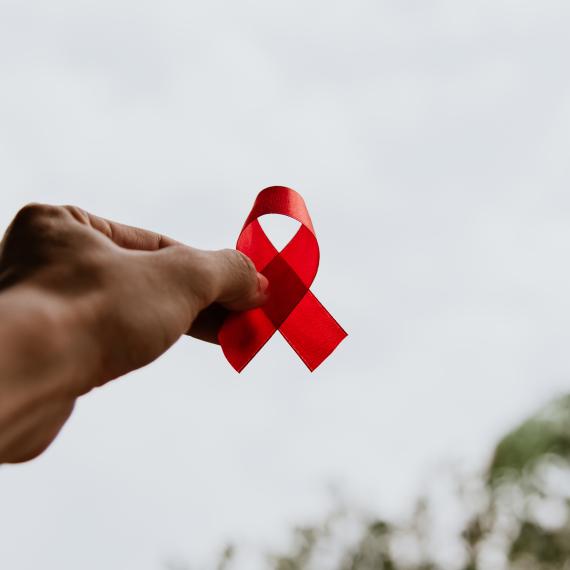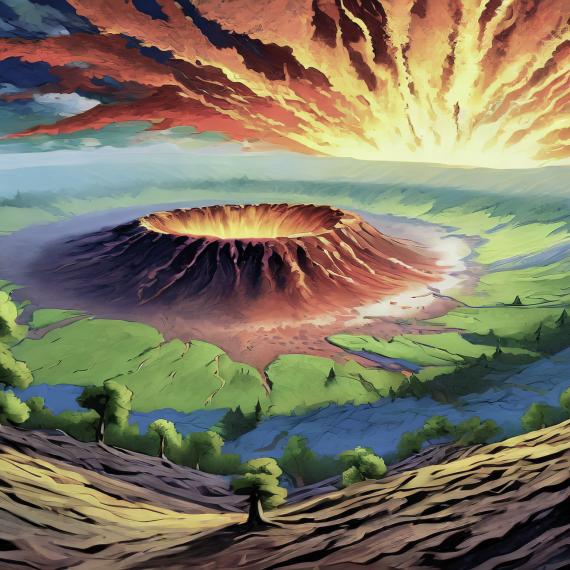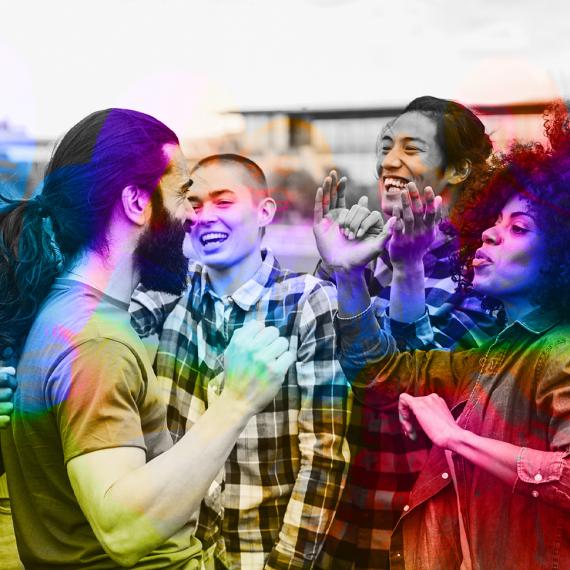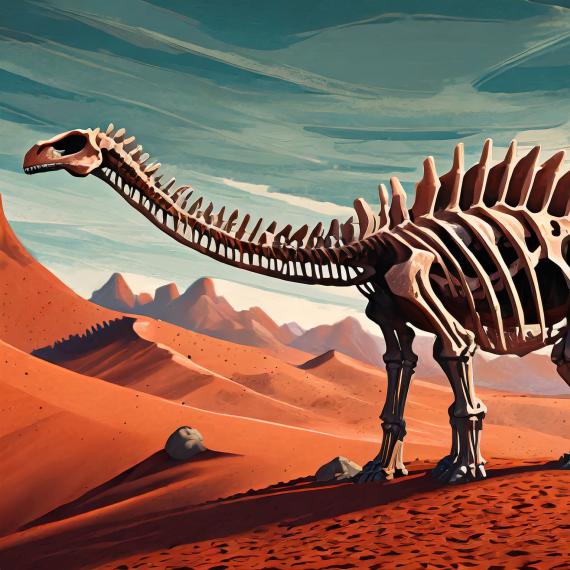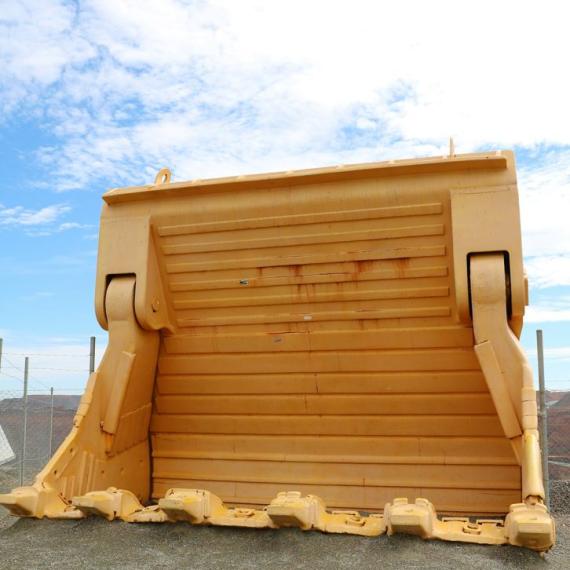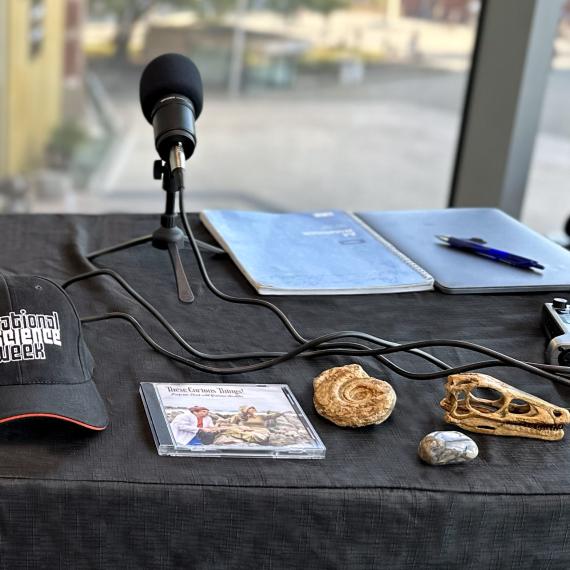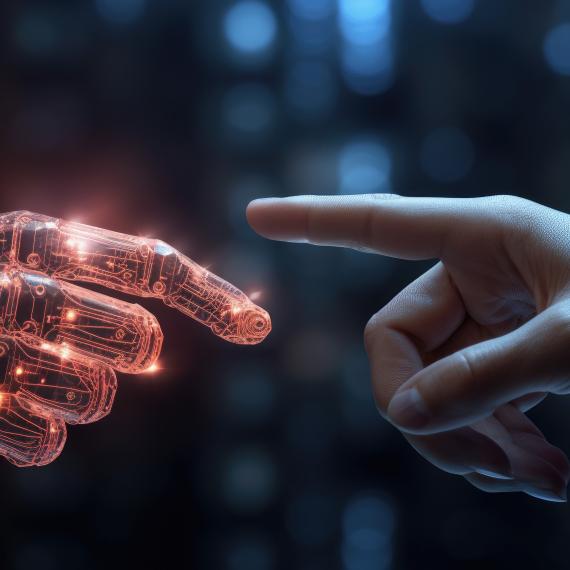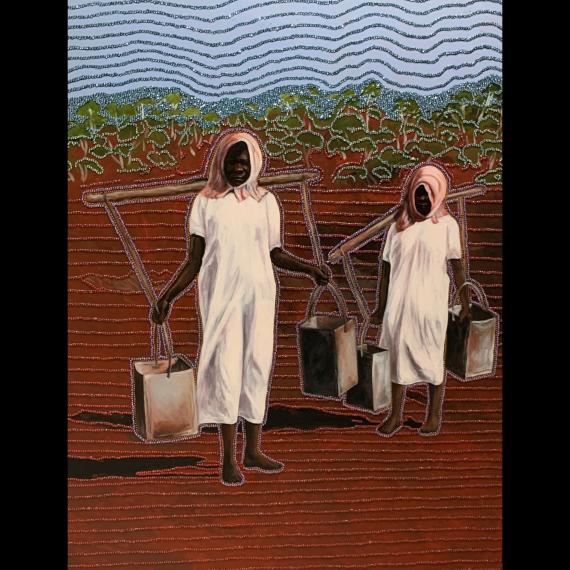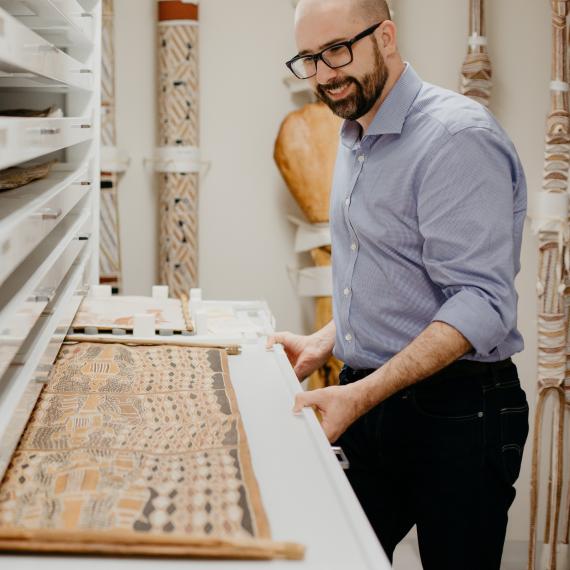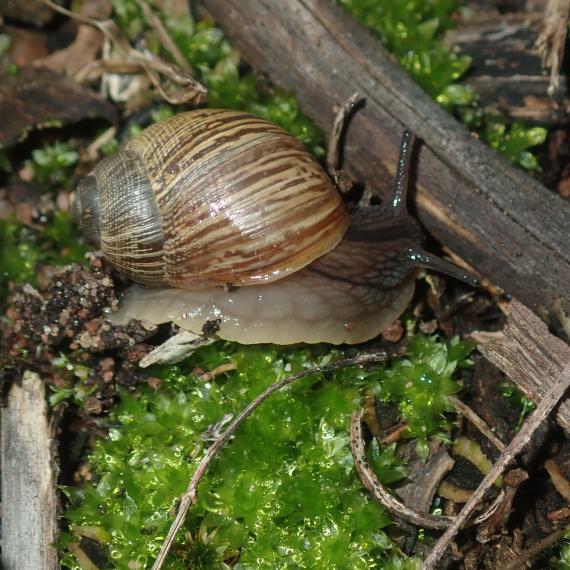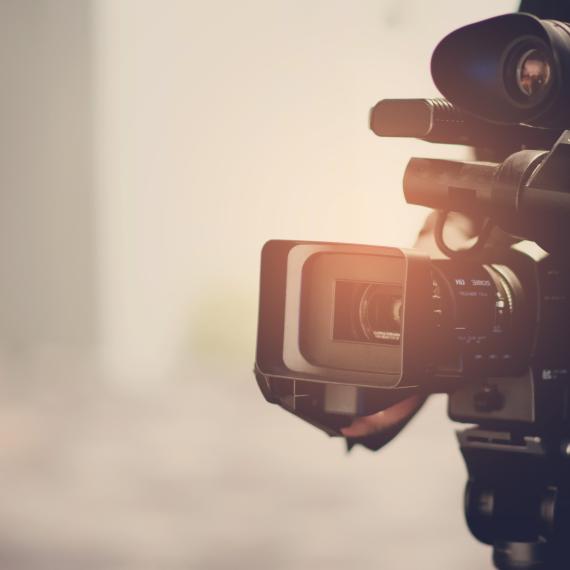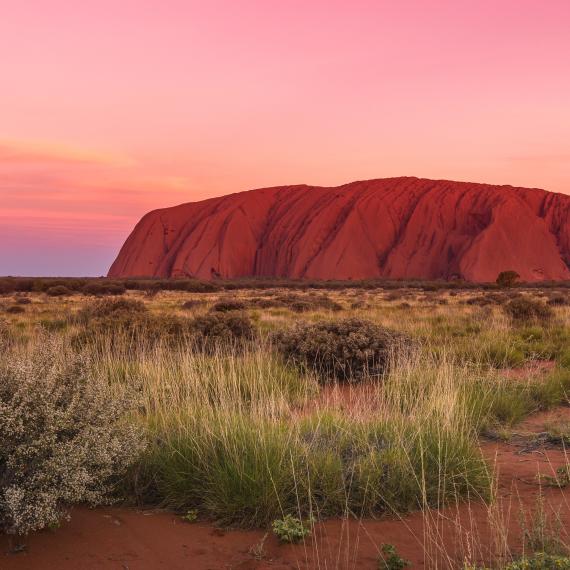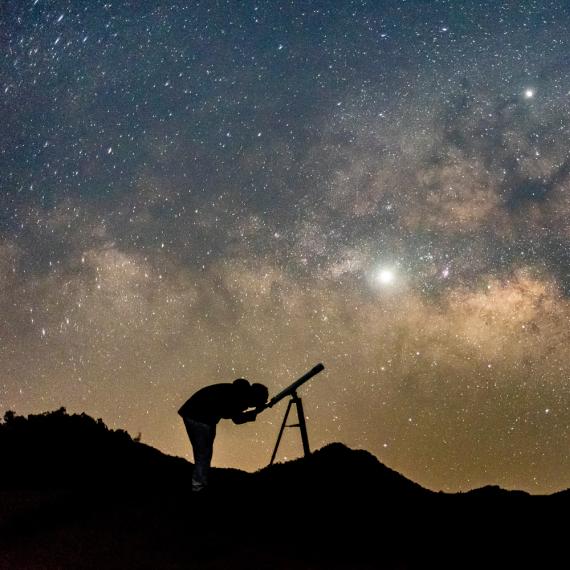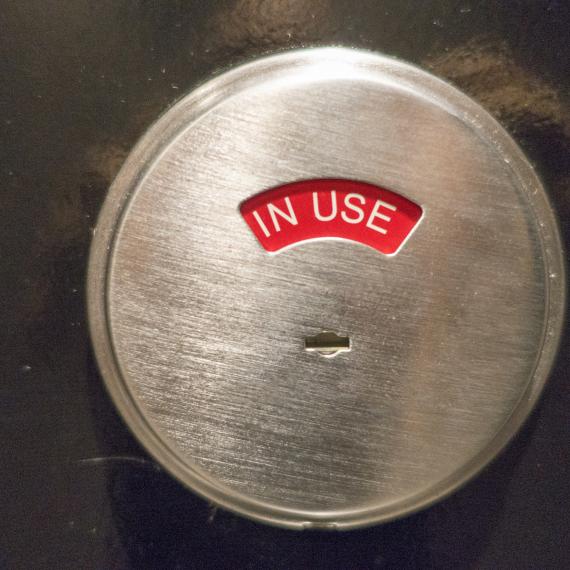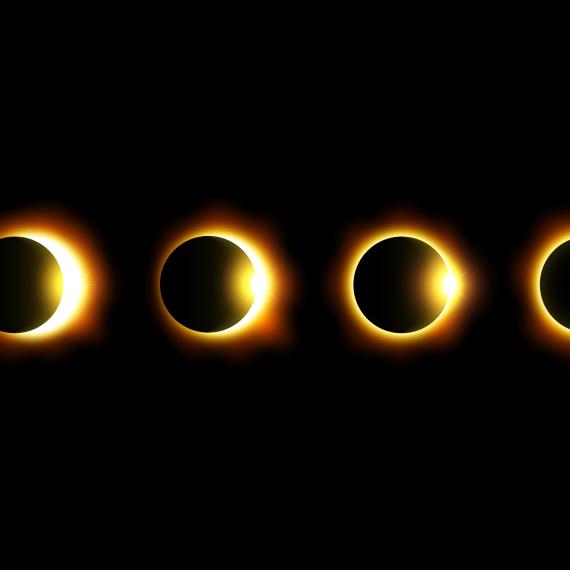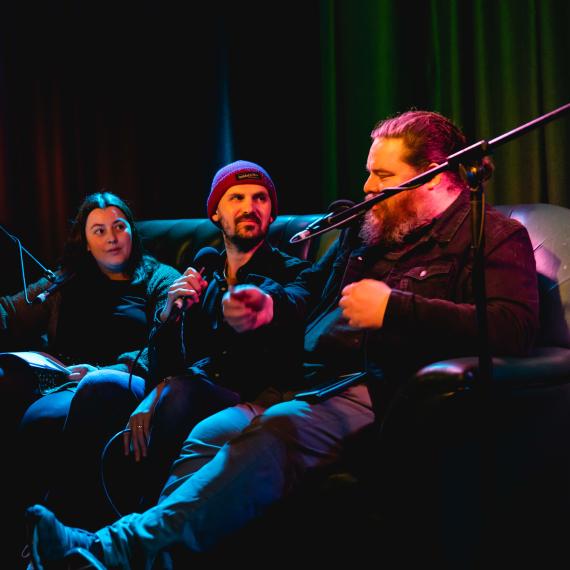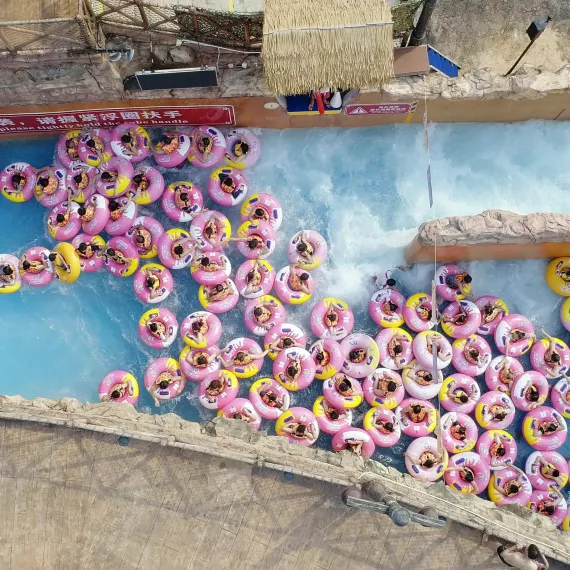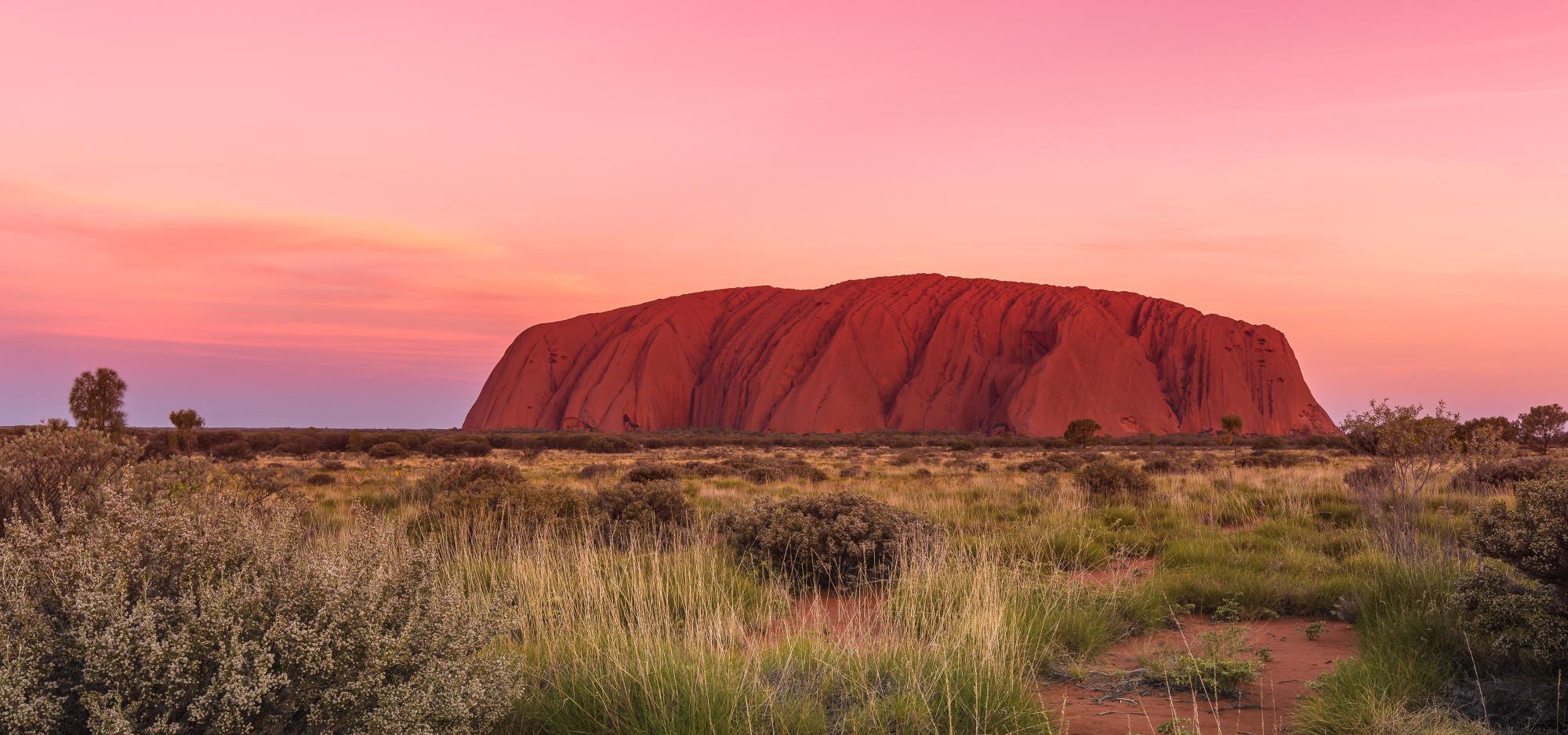
In Conversation: Perspective shifts, with Megan Krakouer
Join Megan Krakouer, a prominent Aboriginal leader, as she discusses the nuances of her surprising change of heart on the Voice to Parliament — just a week before the referendum.
Initially a notable advocate for the No Campaign in Western Australia and nationally, Krakouer's unexpected shift in stance in August prompts a deeper exploration of the complex personal and political dynamics of constitutional reform, particularly for Aboriginal people.
Join her for a conversation on the personal and societal dimensions of this change, offering a unique perspective on the national conversation.
Meet the speaker
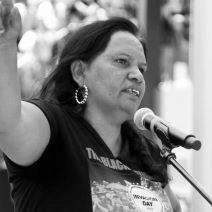
Megan Krakouer is the Director of the National Suicide Prevention and Trauma Recovery Project. She holds an LLB and was recently awarded Perth's Citizen of the Year. Megan has a history of involvement in various human rights campaigns, including the class action against Banksia Hill Detention Centre with Levitt Robinson Lawyers, which is now in the Federal Court.
Megan is dedicated to helping her people living below the poverty line and those in proximity to it. She has extensive experience working with vulnerable First Nations families, contributing for two and a half years to the Royal Commission into Institutional Responses to Child Sexual Abuse. Her work has taken her to 30 remote communities and 27 adult prisons, where she's addressed issues like suicidality, deaths in custody, homelessness, child removals, and domestic violence.
With a background in both government and the private sector, Megan's philosophy revolves around saving lives and improving the circumstances of all community members.
Facilitator
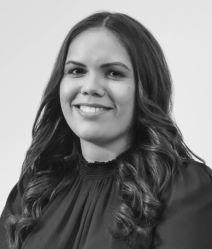
Emma Garlett is a First Nations woman who applies an Indigenous lens to current issues and seeks to educate others to bring them on a journey of reconciliation to make a better Australia for all. Emma is passionate about justice, law reform and ensuring First Nations people are involved in decisions which affect them. Emma is also currently teaching law and has worked as a lawyer, in addition to this working she is a Journalist covering a number of issues, including the referendum on a Voice to Parliament.
This talk will be recorded and published after the event on the WA Museum Boola Bardip podcast platform. Discover past conversations here.
Aboriginal and Torres Strait Islander Voice

In late 2023, Australians will have their say in a referendum about whether to change the Constitution to recognise the First Peoples of Australia by establishing an Aboriginal and Torres Strait Islander Voice.
Be ready for the conversation, become informed at Voice.gov.au
-
Episode transcript
Introduction:
Welcome to In Conversation, a series brought to you by the Western Australian Museum Boola Bardip. In Conversation is a safe house for difficult conversations and passionate and thought-provoking public dialogs that tackle big issues and difficult questions led by some of WA’s most brilliant minds. In Conversation is recorded on Whadjuk Nyoongar Boodjar, the Western Australian Museum, acknowledges and respects the traditional owners of their ancestral lands, waters and skies.
Emma Garlett:
Thank you so much for coming this evening. I really appreciate it. And showing up and turning up. So, thank you for being here. So, my name is Emma Garlett. I'm a Yamatji, Nyoongar and Nibali woman currently living in Carnarvon but flew down so I can have this yarn with you today. So, thank you so much for having me and it's a real pleasure to be here.
So, this is a part of the West Australian Museum's In Conversation series. And I'll just quickly before we start, do an acknowledgment of country. So, I would like to recognize that we are on the Whadjuk Nyoongar country in Western Australia right now and recognize that the land has never been ceded. And they've been here since time immemorial. So recognize any Aboriginal people in the room and recognize your elders past, present and future. So, thank you for allowing us to be here and work and be on your land. So, thank you for that.
So yeah, as I said, it's an absolute honour to be here. I am by trade, I'm a lawyer. But now I work in media and what I'm really passionate about is sharing Aboriginal stories and platforming our voices in media because too often they aren't heard and too often it's really challenging as well to be able to present what our most vulnerable people want to hear and what we need to be able to advocate for those issues to actually have outcomes. And what we realized is that you need to have a voice to be heard, to have outcomes. And so that's what tonight’s about talking about the Voice to Parliament and why we're here, and talk about Meghan's journey, how she's went from a no to a yes, and what exactly changed her and what was at tipping point.
So, before we go any further, I just wanted to introduce you to Meagan Krakouer. So, thank you so much for being here tonight. So, Megan is a Menang woman of the Nyoongar nation. She's an activist, a social justice advocate, an arbitrator for the voiceless and the law reformer. Megan also has a Bachelor of Laws degree, and she also holds a number of senior leadership roles. She’s a director of the National Suicide Prevention and Trauma Recovery Project, and she's also the chair of the Southwest Aboriginal Land and Sea Council. And to recognize all the work Megan has done over the years, she's been recognized through a number of awards, which includes being the recipient of the Dr. Yunupingu Award for Human Rights at the National Indigenous Human Rights Award in 2018 and more recently, Megan this year is Perth Citizen of the Year and was it last week? you got the Australian Mental Health Award as well for 2023, so congratulations.
[Audience applause]
So, as you can see, your work is having an impact and it's being heard and you're being recognized for it, which is really important as well, because those platforms and recognition show you that the importance of all the work you're doing as well. And, and apart from all of that work, Megan has also been very involved in repatriating our 42 ancestors from Germany back to Nyoongar homeland as well, which is a huge significant outcome and a win for us. So that is just yeah, if you can give her a round of applause for that as well, that is very impressive.
So, with all of that, you come from a huge family, you're the youngest of 13 siblings and you attribute who you are today to your mum and dad who have been working tirelessly and so have you for all of these years for justice for Aboriginal people and marginalized and vulnerable people. And your work really looks at making sure that people who are not listened to and unheard have a voice and I wanted to play you all a video that Megan shared with us tonight to just show you what some of her work is. And before we get into the discussion today, so if you could please just turn your eyes to the screen.
[ON TV]
Unknown voice:
IT’S TIME NOW TO RISE!!
News Presenter:
This 13-year-old boy who we'll call Adam has already been to Western Australia's only youth prison, Banksia Hill Detention Centre.
Adam:
When I first went there, try to act tough because I felt like it was like jail, a proper men’s jail.
News Presenter:
He was first incarcerated last year and has already served 12 short sentences for petty offenses.
Adam:
You hear keys all the time, all you hear is keys and doors opening, doors shutting. It’s all you can like basically hear at night and throughout the day. You see keys, keys and keys, just shaking and shaking. It screws with your head.
News Presenter:
You said some of the kids were like ten and eleven and you were twelve. Were all the kids treated fairly in there?
Adam:
No, not really.
News Presenter: What things did you see that you think a kid should be subjected to?
Adam: Like ten-year-olds getting bashed from like sixteen-year-olds? Yeah. That's like…. Weird.
News Presenter:
You saw that happened?
Adam:
Yeah… if you act like... you’re tryin to act like a big, rough person. And you can, you can stand over everyone. You're going to get bashed or mobbed in there. But if you act like just a quiet person doing nothing. They’re just…. you won't get picked on and they’ll just leave you alone.
News Presenter:
Adam grew up in a country town in the care of his grandmother. His parents were heavy drug users who both killed themselves by the time he was ten. Soon after, Adam began smoking marijuana and sniffing petrol.
Why did you take drugs from such a young age?
Adam:
I dunno, because like, everyone was saying my mum, dad, they died from taking drugs. So, I just thought if they died from taking drugs and I'm never going to see them again. So why don't I just, like, you know, just take drugs, see if I’ll die.
News Presenter:
This pain led him to spiral out of control down a path of homelessness and petty theft.
Adam:
I was with my mates, just mates, nothing, just mates. I was hungry, yeah, my nan, she didn’t like, let me back to her house. Kept telling me to just go. So, yeah, I just do what my mates are doing to get feed. Yeah, started stealing, stole cars and broke into houses.
News Presenter:
Months since being released from youth detention, Adam has returned to school and authorities placed him in the custody of his 18-year-old brother, who we’ll call Michael. Estranged for much of their childhoods, both boys have spent most of their lives in Banksia Hill or on the streets,
Michael:
I’d also been down to that point where I had to, like, steal of a homeless person myself. I was homeless. I was stealing off other homeless people just for like whatever was in their bag. I got, I got myself locked up. I just went and like smashed a window and then sat and waited for the police to come. I got locked up so I could go to bed and feed because, yeah, it was pretty cold out in the city.
News Presenter:
So in in a weird way, Banksia was a place in some ways of safety because…
Michael:
Sometimes, yeah, sometimes when there's nothing and you got nothing, that was like, I’d go there for feed. I deliberately get myself arrested just so I can go and eat and have a shower, get proper socks, because my feet was hurting in the same socks for a while.
News Presenter:
Michael was fourteen when he first entered Banksy Hill Detention Centre.
Does it teach anyone a lesson?
Michael:
Nah, it doesn't really help. It just puts you behind. And then they expect you to sit there to the time's up, and then you come out and you're supposed to be a better person.
It’s not like that inside. Yeah. It's just bad.
Adam:
They've got to know where people are coming from, what they're doing it for. But they don't do that. They just see that you're done wrong, they chuck you in Banksia,
Michael:
You messed up. You go behind bars.
[Scene changes]
Gerry:
If you help carry. We got whole boxes of them...
News Presenter:
Gerry and Megan are trying to help the boys find their feet, providing them with food and housing. They say their story shows how the system is failing young indigenous inmates.
Gerry:
What have been their crimes? Homelessness. They've lost their parents. They're orphans. So now we're jailing children who are orphans, who are homeless and who are stealing to survive with nowhere to go. Where is child protection for them? Where is the system there for them? Where is our government there for them. What court could think in its right mind that it should be jailing twelve-, thirteen- and fourteen-year-olds. What were their crimes?
News Presenter:
For now, the hope is that the boys are getting their lives back on track. Michael dreams of one day becoming a mechanic, but right now his hands are full. Just looking after Adam.
Michael:
I'm still trying figure out how to look after myself, probably, and like, my mental health
and I've got to try to do that with my little brother as well. And it's like, I gotta try to get myself into stuff and do stuff and be good with myself, like, as well as do it with him.
News Presenter:
What do you think of this, this life?
Michael:
I hate it, I hate it, I wish I could go back just to around age eight or something and just start again from there. It’s not a good life to live. Yeah.
[Television Clip Concludes]
Emma Garlett:
So, thank you all for watching. So, the reason for watching that was because this is Megan's life and every day, and this is a reality in the lives of many Aboriginal people around Australia and it's hasn't changed and in fact it's getting worse. And that's what the data showing, and we'll discuss a bit more about that later.
But now we'll get into the discussion about what we're here for tonight and you'll realize why we played that a bit later, because that's the reason why. And Megan has decided that she wants a voice to Parliament, and I'll let you discuss that. But first off, the first question I just wanted to ask, why did you feel that it was really important to come here tonight and tell everyone that you went from a no to a yes vote.
Megan Krakouer:
Thank you. Is this working?
Emma Garlett:
Yeah,
Megan Krakouer:
Yeah. Cool. Emma thank you for doing this. Really appreciate it. It's always good to see inspiring young black women coming through. So obviously when we're no longer here, when we personally close our eyes, we're in good hands with the likes of the young people like yourselves, always speaking the truth to those here tonight. Thank you for giving it out. I know that you're all really busy people, and I'm just really honoured and humbled that you're here. If I could be honest, just in terms of National Suicide Prevention, Trauma Recovery project, just to snapshot it. My colleague Gerry and I, we've worked with about 25, 26,000 people right across the country in the last four years.
Some of the most broken, the most marginalized, the most vulnerable, the silent’s, the unheard, the forgotten, those that die out on the streets, those that beg for their children back from Department of Child Protection. So, I’ll go into more details. But one of the reasons why I wanted to come out and share my little yarn there, I mean, I don't think it's a big deal. But anyway, is it was a really tough one to come out with because obviously when they had the invasion day on the 26th, I came out and said no to the voice of Parliament, don’t want it. And I didn't want it for a number of different reasons. I said, we're on the outside looking in. We're only going to be able to make representations.
The Constitution is already racist in terms of section 51,26 in terms of 25 as well. Already racist in that respect. At the time and part of the Nyoongar settlement, which is worth $1.3 billion, we were recognized in the constitution in Western Australia in the preamble and then Mr. McGowan at the time he basically said, right, we're in the West Australian Constitution, we've got this Aboriginal Advisory Council, which is all set up, we've got the voice like model. And I thought, well that's what we've got in Western Australia. It's not making a difference whatsoever. So that was another reason why I came out and said no. The other thing too, in terms of saying no is, well there was a select group of people we weren't involved in those conversations. So, I'm associated with activist groups right across the country and we fought really truthfully, and I always believe and sometimes people seem to think that we're really polarizing, but it's very simple. I'm a friend of the truth, it’s truth to power and is power to the authority, the truth to the authority. So, I just knew that a lot of people hadn't been part of those conversations. A lot of people hadn't been given the opportunity to be part of that conversation. We were actually pushed to the side and it's like, hang on, here we go,
people making laws and all these decisions about us again, without actually involving us. So, in terms of why I did change my mind, it was for the pure fact of suicides. Two little people passed away. One little fella. He'd been in care at the age of five years old. At the age of ten years old, he lost his 18-year-old brother to suicide. He started his journey going in and out of Banksia Hill Detention Centre. And that really broke me because I went to the funeral in Katanning and I just thought, this poor little fellow, 23 years old, leaves behind little children.
The other little fellow he was born and …. down in Albany, I'd gone down to Albany, and I'd got told it that this other little one had passed away to suicide coming out of prison 18 months prior to that. No job, no accommodation, lack of support in terms of dealing with the unaddressed trauma. And he took his life. And there's a video that we did with ABC, and within the first couple of seconds, you see this beautiful young girl. She just dropped to the ground there. She dropped to the ground at the um, in the church service. And that broke my heart. I actually cried and I cried because I thought this was thematic right across the country in terms of suicides. We know that it's gone from one in twenty-three down to one in six, making it the leading cause of death for our people right across the country.
And the suicide rates are going to get worse again. This year, it was tracking at about 239 dear souls that passed away to suicide, First Nations last year. We’re on track to 260, so that was a reason for changing. Those two little people that passed away to suicide and seeing the grief and the hurt and the sorrow in their, in the families faces, we weren't put on this earth to bury our children, but so often that we do, and that is unjust. So that was the reason for changing. I'd spoken to many people right across the country, some of the people that are voting yes, who have been there for a long time and saying vote yes for this reason. And you know, a lot of respect for all those mob. But nothing could change my mind until I saw that we had no way forward and that's the reason.
Emma Garlett:
So, you mentioned some people you talked to couldn't convince you. So, you talk to Linda Burney from how I understand it, and you talk to Thomas Mayo, which are two very prominent Yes. Campaigners, and they convince a lot of people they do. So why didn't they convince you? What did they tell you? Why was the story…. why wasn't that enough?
Megan Krakouer:
Because they…. with the voice to parliament. It can't compel change. That's a reality. And I was looking more towards a treaty because the treaty, how it is over in New Zealand is that they've got five Senate positions that are kind of First Nations people. I didn't want to be on the outside looking in. And when you immerse in the grim reality and we're not included in these conversations, it's, it's, be…beyond beggars belief in so many respects. So, Thomas nothing but great deal of love and respect for him and he does some incredible work across the country. Linda I think she's got a heart of gold and she's a lady full of grace and dignity and kindness. But in terms of what I've seen and being on the front line, too many of our people were left out of the conversation. That wasn't okay with me.
Emma Garlett:
So do you think a bit of mistrust in government in previous decision makings could have contributed to not supporting the voice to Parliament as well?
Megan Krakouer:
Yeah, absolutely. So of course, you've got Labor, you've got the Liberal government. I mean they've both failed our people that's a reality. And right from colonization, I mean you only have to look at the suicide rates which I've just mentioned to you, but also the incarceration. So right across the country, one hundred and thirty-two correctional estates of that is seventeen youth detention centres. That means there's about 42,000 people that's incarcerated. Of that, 13,000 blackfellas, and it's not getting better.
Um, in terms of homelessness. Homelessness is another one which is absolutely catastrophic. You know, just in Western Australia, we've got 19,000 families on the waitlist, another 48, 49,000 people are homeless or houseless. So yeah, we have been failed by government time and time again and is at a point where it's it's failing even more so obviously, we need to do something different. We need a multitude of voices, not just the same voice. It has to be a multitude of voices. So, in terms of how I see it working for a lot of our families, I want to see a multitude of voices. I want to see people from remote communities. I want to see people who's got their lived experience, have that opportunity to be part of it, to be front and centre, because I'm we're always going to be about the lived experience and always giving people a fair go.
One of the things is in terms of a lot of our families and obviously there's the intergenerational trauma, but a lot of our people, we've got trauma, have the trauma of the trauma. And that trauma like with any of us, if it's not addressed, if it's not validated, it can't be disabled. And so, a lot of our families, we got big mob. You have death after death. You've got someone who may have a cousin that's being removed from Department Child protection and Department of Child Protection. This goes back to your mistrust question, Department of Child Protection. It has gone from in 1997 at the time of the Bringing Them Home report, 2000 black kids in care. And then at the time in 2008, the prime minister at the time, Mr. Rudd, he gave the apology to the Stolen Generation. There were 8000 black kids in care and today we have 23,000 black kids in care. So, it's just gone well and truly out of control in that respect. So that's where a lot of the mistrust comes from.
Emma Garlett:
And do you think that that mistrust that the voice of Parliament could address some of that mistrust?
Megan Krakouer:
I think there's a real opportunity in the sense that you'll have a multitude of voices.
I was up in the APY Lands for the last week and a half, the APY that's in South Australia and you've got all these remote communities and a lot of the First Nations people, they speak their own language. So, I was going from community to community to community. But how many people actually know that in some of these communities they don't have aged care facilities? How many people know that there's no mental health services for some of these communities to the point in terms of aged care, as soon as an elder reaches a certain point, they're being pushed off to Alice Springs. So that's where the inclusion of people from the remote areas that live with that see it, that feel it every single day.
I want to say young people that don't get the opportunities to be part of this, I want to say multitude of voices, because I'm fearful if we keep seeing the same, same time in time out, this is just going to be some some voice which is going to set our people up to fail. And I'm not about that.
Emma Garlett:
One of the things you just mentioned as well is people on The Voice that you want a multitude of different demographics and backgrounds of where they're from. There's suggestions that the voice could be local, regional and state or federal levels. So how do you ensure that we can have that? Because we do have the design principles which have been published by the National Indigenous Australians Agency. But if the voice to Parliament is successful, we go through a period of consultation which is for all Australians and then a draft bill will be drafted and that will outline the legislate... the draft bill of the composition, the compositions, the functions, the powers, the outcomes for Aboriginal people and how that so how so. I mean it's not the end of the road now even if we did have a successful referendum, right?
Megan Krakaouer:
Well, that's exactly right. And that was one of my reasons for being reluctant in relation to supporting it to, because there was not enough detail. We didn't know what it would look like in terms of state feeding into national, territory feeding into national. That was very light on in terms of detail. But there will be some strong, robust conversations and they need to be had with all First Nations people. People that are doing it tough, people that are on the streets, so people that ordinarily don't get a voice, people out in our community. Because when we have a look at leadership, what is a leader? Is it a person that's got a microphone and that can speak all across the country to big, big mouth to people? No, we're all leaders in their own community. My sister, rest in peace there. You know… she… seventy-six children, grandchildren, great grandkids and so forth and she kept the little ones out of prison there. And if there was issues with the problem of child protection, she was there. That, to me is black excellence. That's the type of leadership which our country is not elevating. So, in terms of where we need to go to, those robust, robust conversations will be had if it does get across the line. I do see that it can be positive, but if it's going to be the same groups, the heads of the organizations, we need to think differently, particularly with the nineteen Closing the Gap targets and of the nineteen Closing the Gap targets, fifteen are getting worse, that's a reality. And of the fifteen, two are getting extremely worse widening even further, that is child removals and incarcerations. It is shame for our country as the 12th richest economy in the world to say, hey, we've got all this wealth, but at the same time we have the world's highest incarceration rate. We have the world's highest suicide rates.
That's nothing to be proud about. So, I'm hopeful for some really strong, robust conversations, not just with the heads of organizations, with mob out in the community. Give them the opportunity so we can actually do this together.
Emma Garlett:
And it's a really important point you raise around leadership and what makes a leader and having our community leaders and grassroots leaders. So, the voice is opportunity for that. So it's a new space that we can do that. And I think that's what's missing as well, because if we can't…. we're not having outcomes now down through maybe some of the way in which we address leadership, then we need to approach it differently, which is the voice is able to do.
So, I just wanted to ask another question as well. And I think, you know, you've answered, and you've said that it was all the people that you work with, they don't have a voice. And so, this is an opportunity to change, and this is opportunity to close the gap. This is an opportunity to take the data backwards and actually start making sure we don't have our young kids or children have to go through mental health issues or result in suicide.
So, I just think from your perspective now, what do you think that the future looks like if we do have a successful referendum?
Megan Krakouer:
Well, it can be really quite positive. We don't have nothing right now. That's the reality. We've got nothing. You have death in custody in one jurisdiction, the next jurisdiction, people have the protests, people have the rallies. They challenge a system; they make complaints to the government. And so forth. And then years later on down the track, there's a coronial inquest and then there's recommendations and then the coronial inquest, in terms of recommendations, it's shelved, and we've got too many people in that situation. Since the Royal Commission into Aboriginal deaths in custody, the the 339 recommendations there’s been over 550 people that have passed away rest in peace, in various settings and it's really quite tragic.
So, I guess to answer your question, what we don't have is we don't have a central body. There's no central body in this country right now to hear all of our issues, whether it be deaths in custody, whether it be child removal, whether it be incarceration, whether it be heritage matter, whether it be about sites and so forth. There is no one central body.
Now, depending on this particular body, the construct of it, it has to be done in such a way with is true expertise on that. But there also needs to be lived experience on that particular body as well. And then the narrative can change because then… any narrative can be changed. That's a reality. But it's about that strong education. And with the education, the arbitration, negotiation, that all comes in, you can understand and change the deficit truth and the deficit discourses, but it has to be through the narratives. So let me just give you an example of that. Banksia Hill, Banksia Hill Detention Centre. We know that that opened up in 1997. There's been about 10,000 children that have been through there. Forty percent of children that are in Banksia Hill, all are in the care of the Department of Child Protection, but we had to get some kind of action happening there. So, we... there's myself, my colleague Gerry, we just fought really hard, and we basically said what we need to do something about this. We had the class action lawyers over in Sydney and we'd gone all across the state there collecting testimonies and those young people, those older people, the mothers and grandmothers, they spoke out strong. This particular video that I showed there, it goes for about twenty, uh, fifty-five minutes. Now that one there is with Al Jazeera, and we had organized that and there's lots of other families in there that speak about suicides and so forth. And you feel their pain, you feel their hurt. That's how you actually change people's consciousness in that respect. So, I do have some hope for it. But, in terms of the way the government needs to proceed forward, should it get across the line, all need to be involved with it, not the select few.
Emma Garlett:
Yeah, and I think that's the most important part of it as well. So just before we go to questions from the audience, I just wanted to ask you, well, there is so much fear mongering out there, campaigning, different information, people sharing their perspectives and views. A lot of mistruths being spread. It's very easy to get caught up in that on social media and a lot of people are being absorbed by it and they don't know what to vote. They don't know which way they can read something that's a no, they could read something that's a yes and both could convince them. So, it's really hard for people out there right now. So, what advice would you have for people that are sitting on the fence or voting no? What do they need to consider having gone through that process yourself for a better future?
Megan Krakouer:
What I would say to a mob that don't know because at the end of the day we’re all brothers and sisters, a human family. Life is brief. If you've got agency, use your agency. Lift and elevate those that don't have agency because we are brothers and sisters, the human family.
Now, in terms of people that don't know what's going on, I said to my boy there, I said, oi what you doing? You voting for the voice there? He said, what’s that? That’s that TV show?
[laughter]
He said, No, no, it's not that TV show about this voice of parliament. But it's a tricky one because when you're dealing with First Nations people, we are a proud culture. We're an old culture, we're the oldest culture in the world. So therefore, you have a lot of diversity up in the remote communities. You know, you have people that are speaking different languages. When I went up and yarned with people in the communities recently, I was doing it through an interpreter. So, the information really needs to get out to community in such a way where it's culturally relevant, it's easy to understand.
But the most important thing, if you've got access to the Internet, have a look at the people that are speaking. Have a look at the Jacinta Prices, have a look at the Linda Burneys and so forth, and make that judgment for yourself. It can be really quite confusing because there's a lot of technical language that can be used, but simply it's this.
The voice can only make representations. It can't tell government what to do. So, it's the lowest bar. You could walk across that bar and not even notice that you've walked across it. That's how low that bar is. The other thing which I do like about it is that it will bring a multitude of voices together. It's kind of like when you go back to 1967, the 1967 referendum, we had 90% beautiful souls right across the country, all coming together for the 1967 referendum. And they voted on for two things. One was for Aboriginal people to be counted in the census. That's good. The second one was for Aboriginal people, well, for the Federal Parliament to make laws in relation to aboriginal people. So that was absolutely incredible because if that didn't happen, we wouldn't now be in a position to measure the closing the gap targets.
So, this to me is just a natural progression. But again, for those that haven't don't know much about it, they really need to do some kind of research. At the end of the day, it is a democracy, and we have to respect each other's views. As brothers and sisters, I've seen so much bad mouthing, I've seen so many nasty, angry text messages. I've seen people that have come out denounce some people what? for having, their own opinion? their own view? And I think as a country, we're better than that. We aren't born racist, racist is a learned behaviour and it can be unlearned through the right education. So, for those that don't know about it, again, just research as much as what you can.
But also, the Yes campaign, they've been really quite good with getting the information out. You listen to people like the Thomas Mayo, he explains it very simply. You also listen to a person, by the name of Dean Parkin, and he's absolutely incredible as a speaker and so forth. But yet there's a lot of miscommunications, there's a lot of mis information out there. But seriously, it is a very, very low bar. But if we get it across the line, we can have some kind of hope because right now our country needs that. If it doesn't get across the line, who knows what's going to happen. I can tell you right now the type of work that I'm doing now, I'll continue doing if they should get across the line.
But this is an opportunity for a multitude of voices, which is so needed from all parts of this country. It's about bringing people together, that togetherness, that kindness. The assertions that are made. Well, we're going to divide the country. You know what, we're already divided. That's the reality. We're already divided. This, to me, is something so pure, so kind, so innocent. Innocent in the sense that, hang on, there's a reason why we're doing this. We don't want to keep seeing the Closing the Gap targets like this. We don't want to keep seeing First Nations people die at alarming rates never seen before. We don't want to keep investing into prisons and sending people in the jails. And so forth, and them not having any hope coming out.
We don't want to see about the child removals where people are begging to have their children back. What we do need is at one central body and you know what? I'll be honest with you, I don't know if it's going to work, but I know that it's going to be better than what there is right now.
Emma Garlett:
Yeah, I think that yeah, that we can't get better than that. And like Megan said, what do we have? We've got nothing right now. And if we don't do anything, we'll continue to have nothing. So yeah. Thank you so much for that Megan. And coming tonight, down tonight and having this discussion. It’s very valuable and I'm sure everyone got a lot from it. So now would just like to give an opportunity for everyone out here. If you have any questions that you would like to ask Megan that she's willing. Yeah, You're all good for questions. So yeah, if you have any. But yeah, sorry, we have a microphone over here as well just because the conversation's being recorded. So yeah. Is there, are there any questions from anyone?
Ciaran Mc Donald:
You've got your own, um, very valid reasons for, you know, the journey that you've been on from having a perspective of no moving to yes. What would be your message for people that are non-Aboriginal who are, you know, leaning towards a no, in this discussion?
Megan Krakouer:
Put simply, we're all brothers and sisters, the human family. We're losing too many people to suicides. We're losing too many people in the correctional estate; we're losing too many people on the street there. We can keep arguing about treaty,
we can keep arguing about a whole range of other ways forwards, but whiles, we're arguing, whiles we're not coming together, we're going to lose more people. That's the reality. We cannot keep going to funerals of young ones. So, my thing would be to say to some of those ones who are not sure what they're going to do, who may be leaning towards no, think about your community, think about your brothers and sisters, think about those that you see firsthand burying a person. We have nothing right now. And that's the reality. I mean, I've been fighting around for justice for a half a decade now and raising as much as what I can using our deficit, truth and the voices of our people. And that's why when you have a look at a video like that, you'll see family after family after family after that, sharing their painful experiences about losing a loved one, the tears that come with it.
So, you know, I could have stood my ground and said, no that's it, want a treaty, I don't care what goes on. We're going to fight. We're going to fight hard for this treaty, we're going to hit the streets there, we're going to do protests and so forth. But when I seen those two little people that passed away, that's when my heart broke and that's when I knew that I had to change. Not for myself, but from for for all our people. So, think about human life there. They think about closing their gap strategies, which isn't closing. Think about the people that came about in 1967 and said, hey, this is what we've done in the spirit of this country. And as a result, we now have these issues which we can deal with. If there is one central voice. We don't have a central voice.
Emma Garlett:
We have a yeah. thank you for that. We have another question over here.
Audience Member 1:
Um. So, this country's clouded with, um, a lot of sort of, um, ignorance. And my question is about truth telling. So, with the second part of the Uluru Statement, um, you know, with the fact that contemporarily like there was the, the, trialled cashless debit card and then there was the Northern Territory intervention, you know, 15 years ago.
And then you’re going further back, there was the permits to come into the city and you know, all the all the massacres and whatnot with the frontier wars and Rottnest and everything. My question is, how do you have a conversation with someone who, you know is so willing to embrace that ignorance, considering that they may very easily become defensive and especially in regard to, you know, if the referendum comes up or doesn't, how do we continue that conversation to ensure people willingly get involved in, sort of, yeah, facing that past?
Megan Krakouer:
I think in terms of this conversation right across the country, there's been some beautiful dialogs. There's also been some respectful dialogs. It has to be a stairwayed education because I've done lots of cultural awareness training courses and trained about 25,000 people right across the country. And I remember this one time this dude walked into the class, said,
“Ahh, I don’t want to be here. and I'm not going to learn nothing”. It's like, oh, okay, then. So, I was just real calm, chilled and that type of stuff. Anyway, he came up at the end of the session. He says, “You know what? I didn't want to be here, but I'll tell you what I learned a lot and thank you.”
So, it has to be about a stairwayed education because we're not born racist. That's the reality. But sometimes it's instilled in us for various reasons. My thing is…. and I went down and did my vote the other day in Fremantle, did my little yes vote there. But it was quite interesting because you had one lady who was for the yes, and she was a beautiful, staunch, strong lady. And then on the other side you had this dude, and he was, you know, [inaudible words] and I and I could hear the banter between the two and I was thinking, oh yeah, here we go. But then I walked across to this fellow with who was voting no, and I said, Brother, tell me what's going on. How come you support the no? Tell me your reasoning about it. And then he spoke, and he said, “Well, one of the reasons why I don't want to is because it's going to entrench indigenous disadvantage into the Constitution.”
And I said, oh, okay, but he very much said that. So, I just talked to him, had a bit of a yarn and basically said, well, look, this is the actual reality that people are going through right now and we actually do need quite a bit of help and support because there's only at least two, three percent of us people right across the country. In fact, one in twenty-six people across the country is a First Nations person. My thing is always be calm and relaxed, kind, but it has to be that stairwayed education. So, you can challenge and say, I've been fortunate enough in where I am at the moment in mixing with so many different people across the country. A lot of people I love, and I care about our families and so forth.
When you have a true understanding about the grim reality that our First Nations people face, it's easy to change the narrative, but it's always going to be calm. And also having that strong education and having a beautiful conversation built on respect. I mean, I've seen people go at it around this this voice thing, this voice debate, it’s disgusting. It’s really shame. And even some of our leaders is like, hang on, you just need to pull up for a little bit. If you want to shift the public consciousness. And that's not the way that you behave. So yeah, just respect conversations where you can sometimes that's not going to be enough. That's reality, but just be who you are twenty-four seven. How I am today is how I'll be five, ten years down the track day there.
I walk into a meeting with all these ministers’ jeans on, T-shirts, beanie, whatever. You know, it's about being who you are twenty-four seven, and just educating where you can and doing it in such a way where it's not polarizing, it's not nasty. And that just shows how classy that you can be.
Fiona Stanley:
Thank you so much for sharing all this with us tonight. One of the things I just want to ask you whether with all of the debates that are going on, some of which, as you intimated, were really nice sharing, is there a sense that we're actually learning a lot more about Aboriginal history? I mean, obviously we're learning more about the poor outcomes, but that's been around for a while. But how do you feel that Australians who are not Indigenous are learning about Aboriginal cultures and Aboriginal ways of doing through the process that we're going through? Is there is there a good side to this?
Megan Krakouer:
So the beautiful Fiona Stanley [laughing] and it’s cool shame (42:53) there because they put me and Fiona in an article together [laughing] when one was Yes and the other one was No [laughing] But anyway, to answer your question, what I think that this is doing is it's actually forcing people to learn more about the voice is learning is teaching more people to learn about the culture, it's teaching more people to understand about the constitution. So, these beautiful conversations that ordinarily wouldn't happen are taking place. I'm not ignorant to the fact that there's some people that's just sending, sending some really nasty messages and so forth. But the words out there, people are embracing it. What I am seeing and, you know, like it was beautiful when I said recently, I've seen a lot of people come together. They talk about this, the vision in this country. But then when I see little black kids together, little wadjella kids together, they're all, you know, all little children together and all different people coming together.
It's absolutely, really quite beautiful. And it's beautiful in a sense that People are learning more about our culture, which is so robust, it's so strong, it's so loving and so gentle, and it's something that we should be all proud of as a country. But people that wouldn’t know about the constitution, people wouldn't even know about how many different Aboriginal groups there are in the country, they're learning more about it right now. And that's a beautiful thing. Again, it’s truth to power.
Fiona Stanley:
The revitalization of Aboriginal knowledges. How has that happened given this country tried through genocide and otherwise to completely eradicate the Aboriginal culture and Aboriginal languages, houses coming back, Look at the Aboriginal birthing on country. It's remarkable and it's apparently oral history. It's still there. How does that happen? I just think it's fantastic.
Black magic
[Audience laughing]
Megan Krakouer:
I don't know. I think one of the most amazing things about your question there is about that education. Education is a powerful tool, but also those that are living in remote communities, and we know in remote communities, about 1200 across the country. And of the 1200 is about 120,000 people and of the 120,000 people, 35,000 children will not get an education. That is cruel, it is sad, it is wrong and it's an indictment on the federal government at this point. But in terms of revitalization of the languages, yeah, you're seeing it happen all across the, all across the country. And absolutely beautiful, little babies speak in their own little language there. And it's being offered in the schools and so forth and there needs to be more of it. That's a reality. But where we are now, we're still here. We're always going to be here. That's the reality.
I mean, there's some things that can be done better. That's reality. But I think that's something that if there is the voice of Parliament that does get across the line with a multitude of voices from all different types of mob from across the country, it will be a powerful, powerful, powerful group that has these strong ability to influence and it can influence change so it can make and produce better outcomes which our people so desperately need right now.
Audience member 2:
Kaya Megan, first of all, thank you. And I would like to acknowledge the work that you do in this space forever and ever and ever and hours and hours and hours and always giving. And my question is, what sustains you? At the moment, I'm just receiving so many calls from really distressed people. There's a lot of stress in community, a lot of fear in community, and you're seen as such a strong, resilient woman. What sustains you?
Megan Krakouer:
People. I love our people. I stepped away from big jobs to walk into this area. I’ve nearly lost my house three times. So, it's been really quite tough in that respect. But I love our people. When you turn around and you see a life, a life support machine that is turned off an eleven-year-old girl, on a nineteen-year-old boy and you know their deficit truths aren’t being told, it's not being heard, the narrative is not changing. You know, you have to be who you are twenty-four seven and I've made some huge sacrifices. When I walk into a door, and I've walked into families life who I didn't even know. But there's been a tragedy that brought us together three or four years ago. Those ones are still my family today so I can walk into any of their houses and say, “Hey whatcha cookin for dinner tonight?”
But there's a beautiful, kind, loving respect there, It's not a job to me. It's who I am. So, when people say, Oh, what do you think about this job here, you know that you're doing? No, it's not a job. It's who I am. I love our people and I'll fight for our people, and we'll fight together, we stand side by side. But what keeps me calm, what keeps me happy, and what keeps me relaxed. Particularly when you see things like that life support machines being turned off, or when things are feeling a little bit helpless in so many respects. My dear friend and my best friend in the whole world, Gerry Georgatos, a man who's walked into 600 remote communities of the 1200, the man who's got ten odd degrees, a man who's got the biggest heart in the world there, who’s got such fire and love and kindness in his heart, there, he's the one that I turn to.
But what keeps him going like… it's the families and I don't want to keep saying the sadness that we see. Our babies keep hurting themselves. People going to the hospital only to be turned away three, four, five, six times and then finally the father takes his life and leaves behind leaves behind a baby now, growing up without a father. Our people's lives matter. And that's why we do a lot of media, and we do a lot of media with the families. There was one meeting that I went into with a minister recently, Paul Papalia, and anyway, we started yarning about a few things. But what I did say to him, we're going to start the meeting this way. We're going to listen to a little 6PR interview there’s three people in it, but I only want you to hear one.
So, we sat back, and we just listened to this one speaking away, talking about all the different treatment that he's suffered at Banksia Hill, how pillows will put up against surveillance cameras and his ankle twisted so back, so far back that he had to be taken to the hospital. Anyway, it came to an end, and I said to Mr. Papalia, “What do you think this one is doing now? He says, “I'm not sure.” I said, “Well, he's passed away, committed suicide a couple of weeks ago. He leaves behind two children.”
So, it's the love of our people and the need to basically elevate the deficit truth that's so important. I don't care about positions. I don't care about titles; I care about our peoples. One commissioner recently said to me, “Oh, Megan, why don't you come work with the government?” I said, “No, because you people will take my voice. And if you take my voice, if you suppress my voice, I'm not going to be any good for our people there.” So, it's been really, really hard. I'll be honest with you. You know, I'll go home then I'll be checking message as I'll be sending messages. Facebook always available in that sense. But it's the people that I love and that I care about, and I'll fight tooth and nail for our people.
Audience member 3:
Thanks for that. It may be more of a comment, I suppose. I've known Megan for a while now and she's an absolute social justice warrior. The work that she does out there in the community. I've also seen so many, you know, Aboriginal organisations out there that come to Megan day in, day out to ask her and get her expert opinion on what's happening in Banksia Hill or what's happening on the streets of Perth, you know, to come through. And I suppose visiting Megan last week to see her new, her new premises that someone has kindly donated to continue her work, I think, you know, it's a no brainer. And if, if everyone could hear this interview tonight in Australia, I'm sure that the voice would just be a no brainer for everyone.
As you know, a leader in the construction industry, we say a pretty simple, you know, give a pretty simple sort of view on the voice. And it's as simple as that. You won't see a union agreement anywhere in Australia that doesn't have a consultation clause and if there's no consultation clause, they'll go on strike until they get one. You know, and it's about time Aboriginal First Nation people had their consultation clause put in the referendum and when we say that at meetings within the construction sector in Perth, the penny drops and they say, well, is that what it's all about? So, it's lack of education. I'm sure if Megan's story was told throughout the country, it would be a no brainer sort of coming through with that. So, thanks, Megan. I'm glad that I'm here tonight to listen from yourself and just, you know, keep up that fantastic work that yourself and Gerry and all of your mob do on the streets of Perth to come through.
Megan Krakouer:
Well Mick you know what I think about you. You’re a deadly person and you've been an incredible person for the last couple of years there. And, and some of the donations that you've managed to organize, which have gone into food vouchers and so forth, and that's been absolutely incredible because we do know it's a poverty narrative. We do know, in fact, that right across the country, 40% of people, first nations, people below the poverty line. We do know for a fact that in Western Australia we fall below the poverty line of 60%.
And then in the Northern Territory it's about 75, 80%. So, when you think about the poverty line, you think about okay, about $460 a week. A lot of our people are on that in terms of Centrelink. So, the work that you've been helping with and the support that you provided always being that kind person, when I give you a call, you know, you just bring a lot of joy to my heart if I could be honest. Because you give me hope and I feed off that because I know that there's good people and you're one of those people. So, thank you.
Emma Garlett:
So yeah, there's so much emotions going around. And, you know, I mean, I'm very touched by everything that you've said tonight and just hearing the stories and the impact and how we can really make a change for some of our most vulnerable people that are, you know, communities that really need us.
They don't have anyone. They don't have a voice and they need this. And so, yeah, thank you, everyone, for coming. Megan, thank you so much for coming down and sharing your story and sharing all the work that you do with everyone here tonight and everyone listening that might be listening at home. And I really hope that everyone takes something away.
And if you just talk to one or two people, or if everyone talks to five people, then we can all make sure that people are informed and understand how important the voice to Parliament is for Aboriginal people in Australia.
Megan Krakouer:
Can I say one last thing?
Emma Garlett:
Oh absolutely.
Megan Krakouer:
To my beautiful family there. Thank you. You know, seeing you fellows in the audience as well, and I know we're all brothers and sisters, the human family no matter what your colour their but to see you here yeah, yeah that really warms my heart there.
And it's, it's ones like this one here. She needs to be given opportunities to be elevated into those roles so she can speak her truth. So, our younger ones can speak their Truth. Like I was saying, truth to power. People in government can't fix what they don't know, and that is the strength of this voice, because it will bring so many people together, in my opinion.
We have a really beautiful minister in the Linda Burney. Linda Burney is a very honourable and gracious lady, like I was saying. But it's it's mob like yourself right now with your powerful lived experience, yours. We can speak together as one to make this a better country. It's very simple. The rubbish about it being divided, like I mentioned earlier, already divided, how do we bring it back together? Hate feeds hate. That's the reality. Love will always defeat hate. And we're in a unique position right now to do something so special that can save the lives, that it can improve life circumstances of people right across the country and make it a more united country. But right now, it is in we as in first nation people in terms of non-Indigenous brothers and sisters, we need your help.
Thank you.
Outro:
Thanks for listening to In Conversation brought to you by the Western Australian Museum Boola Bardip to listen to other episodes from the series go to https://visit.museum.wa.gov.au/episodes/conversation where you can listen to a range of talks from past and current seasons of In Conversation and more. In Conversation is recorded on Whadjuk Nyoogar Boodja. The Western Australian Museum acknowledges and respects the traditional owners of their ancestral lands, waters and skies.
More Episodes
A compelling discussion shedding light on the distinctive narratives of those openly embracing their HIV-positive status and what this has meant historically and in today's world.
Meet Professor Kliti Grice, the West Australian Scientist of the Year 2022, as she embarks on a quest to decipher the Earth's past mysteries.
Join a panel of featured young LGBTQIA+ writers and storytellers as they delve into the fantastical realms and real-world struggles of the exciting new anthology, An Unexpected Party.
Explore Australia's dinosaur legacy with Dr Stephen Poropat as we better understand the science behind the scenes of Australian palaeontology!
As we inevitably move towards cleaner, more sustainable forms of energy, how will a shift away from traditional mining practices transform this economy? A panel of experts explore the implications of this shift with a specific focus on how we see ourselves in a world that increasingly demands environmental responsibility.
Join host Michael Mills in a captivating live recording of the Palaeo Jam podcast during National Science Week!
As AI rapidly evolves, join our panel of experts in an exploration of these complex issues, including how we can harness its power while ensuring responsible and ethical use before we're outrun by its speed.
Do you know how and why your teeth do what they do? Find out all there is to know about teeth sharpening.
Decoding the language of our written and oral histories in Australia.
Join us for an insightful talk with the esteemed Professor Henry Skerritt, as he takes us on a journey exploring the captivating art of Jdewat/Ballandong artist Meeyakba Shane Pickett.
No, it’s not a card game but a community initiative helping us further our knowledge of a group of endemic land snails Bothriembryon affectionately called ‘Boths’.
Delve into the way Aboriginal industry professionals are shifting representations, decolonising the media space and creating visibility for Aboriginal people in the industry.
Exploring the debate surrounding the establishment of an independent, representative advisory body for First Nations people.
Aristeidis Voulgaris sharesstories from his eclipse chasing travels and discover the complex instruments and tools used in solar astronomy.
Join a panel of experts and community as they investigate the nature of queer bodies, and queer sexuality, in public space.
Join historian Toner Stevenson and astronomer Melissa Hulbert, as they share their tips on how to salute the sun during this eclipse!
Simon Miraudo and Tristan Fidler from RTRFM’s ‘Movie Squad’ are joined by Chelsey O'Brien, Curator at ACMI, as they review and discuss Alice’s Adventures in Wonderland as a foundation for contemporary storytelling in film.
In this one-off Perth Design Week talk, the Museum celebrates the remarkable women in architecture and film in a panel discussion, recorded as a part of its recent award-winning film screening.
Join world expert Dr Chris Mah from the Smithsonian Institution as he recounts his encounters with some of the most unusual creatures on the planet.
